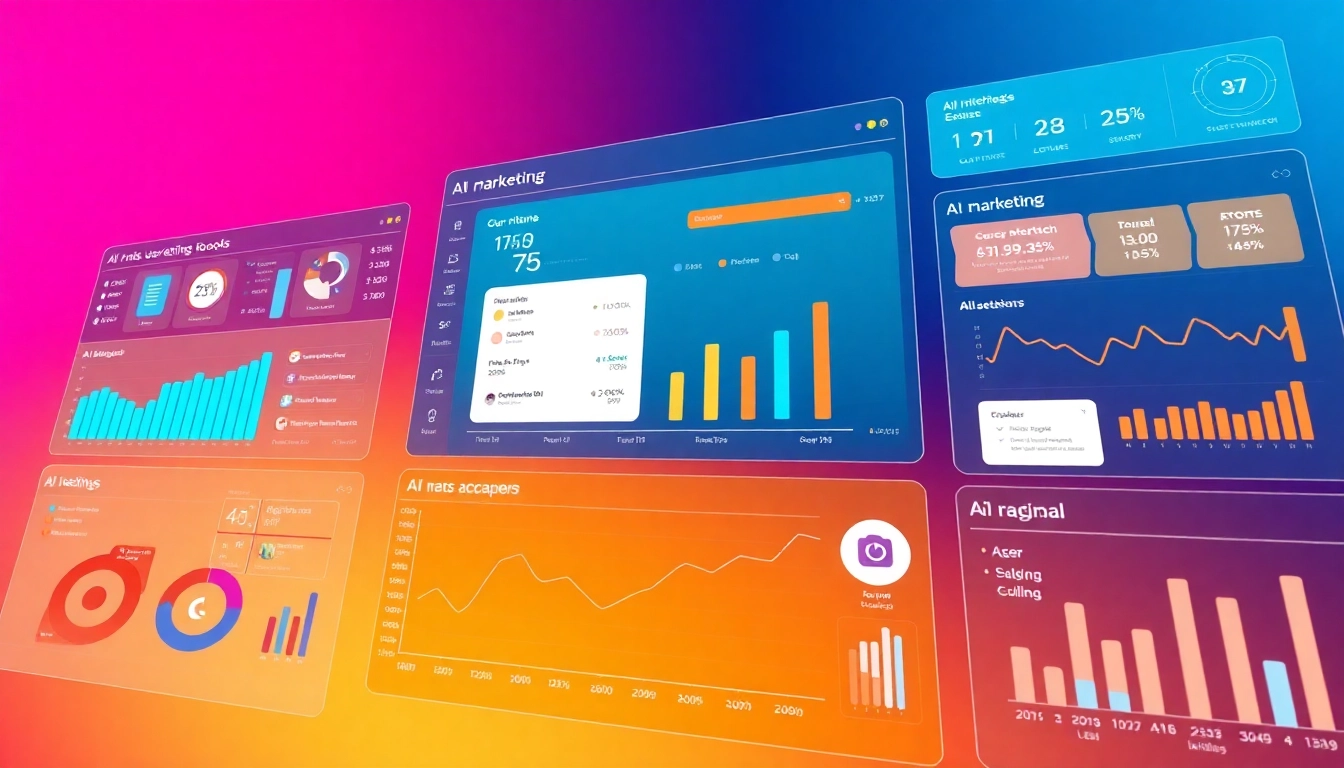
Understanding AI Search Engines
What is an AI Search Engine?
The digital age has seen a dramatic transformation in how we interact with information, particularly in the realm of search engines. AI search engines utilize advanced artificial intelligence technologies to enhance the search experience, moving beyond keyword matching to understanding context, intent, and user behavior. Unlike traditional search engines, which primarily rely on indexing and ranking algorithms, AI search engines leverage machine learning, natural language processing, and deep learning to provide more relevant, nuanced, and personalized results. This integration allows users to engage in more complex queries and receive answers that often include direct responses rather than a mere list of links. These capabilities are reshaping how users access information, making it more interactive and user-friendly.
How AI Transforms Search Experiences
AI has fundamentally altered the landscape of online search by making it more intuitive and user-centered. With AI algorithms, search engines can analyze vast amounts of data, recognizing patterns and trends that humans may overlook. For instance, they can predict what a user is likely to ask next based on their previous queries, thereby creating a more seamless journey through information retrieval. One of the most popular aspects of AI search engines is their ability to understand natural language. Users can pose questions in conversational tones, and the AI can interpret the intent behind these questions to deliver more accurate answers.
Key Features of AI-Powered Search
AI-powered search engines come with several key features that elevate the search experience:
- Contextual Understanding: AI can understand the context of queries, allowing it to deliver more tailored results based on user history and search intent.
- Natural Language Processing (NLP): This technology enables users to interact in natural language, improving the ease of use and accuracy of search results.
- Personalization: AI algorithms consider user behavior to offer personalized suggestions, which can enhance user satisfaction and engagement.
- Real-Time Learning: AI can learn from interactions and improve over time, refining its ability to deliver relevant results as user needs evolve.
- Conversational Interfaces: Many AI search engines allow for conversational queries, making the search experience feel more interactive.
Comparing Traditional Search vs. AI Search
Limitations of Traditional Search Engines
Traditional search engines, like Google and Bing, have been pivotal to the internet’s growth. However, they have significant limitations that AI search engines aim to overcome:
- Keyword Reliance: Traditional search operates heavily on keywords, which means a poor choice of terms can lead to irrelevant results.
- Page Ranking Focus: Results are often determined by how well content is optimized for search algorithms rather than its relevance to the searcher’s intent.
- Static Results: Once a query is entered, results are generally static and not personalized, which can lead to users sifting through irrelevant content.
Advantages of AI Search Algorithms
AI search algorithms address traditional search limitations by incorporating advanced techniques that facilitate a more holistic approach to information retrieval:
- Understanding User Intent: AI can deduce what a user is trying to accomplish, leading to better-targeted results.
- Dynamic Results: Unlike static results, AI can modify answers based on context, previous searches, and user behavior.
- Engagement and Satisfaction: Through personalized experiences, AI encourages deeper user engagement and higher satisfaction rates.
Case Studies of Effective AI Search Implementations
Several organizations have successfully implemented AI search engines, showcasing their impactful benefits:
- Duolingo: This language-learning platform employs AI to personalize learning paths for users, enhancing the effectiveness of language acquisition.
- Amazon: Their product recommendation engine uses AI to analyze user behavior, providing personalized product suggestions that boost sales and customer satisfaction.
- Netflix: The streaming service uses AI to recommend content based on user viewing history and preferences, maintaining high user engagement.
Choosing the Right AI Search Engine
Factors to Consider When Selecting an AI Search Engine
When selecting an AI search engine, businesses and individuals should consider several key factors:
- Use Case: Determine the primary purpose of the search engine, whether for personal use, business intelligence, or research needs.
- Integration Capabilities: Assess how easily the search engine integrates with existing systems and workflows.
- Cost: Evaluate pricing structures, as some AI search engines offer free services, while others may charge for premium features.
- User Feedback: Gauge user satisfaction through reviews and testimonials to understand real-world performance.
Popular AI Search Engines Reviewed
Here are some of the most notable AI search engines currently available:
- Google Gemini: An advanced AI engine that incorporates conversational capabilities to improve user experience and provide contextual results.
- Perplexity AI: A powerful search engine that combines generative AI with real-time web searches for accurate, well-structured answers.
- Bing Chat: Leveraging AI capabilities, Bing Chat transforms traditional search into a conversational experience, responding dynamically to user queries.
User Feedback and Ratings
When researching AI search engines, it’s crucial to consult user feedback and ratings. Platforms like AI search engine comparison sites and forums provide insights into user experiences. Look for engines that feature consistent high ratings for accuracy, speed, and ease of use.
Implementing AI Search for Your Business
Strategies for Integrating AI Search Solutions
For businesses looking to implement AI search solutions, it’s vital to adopt a structured strategy:
- Identify Objectives: Clearly define the goals you want the AI search engine to achieve.
- Choose the Right Platform: Based on earlier evaluations, select a suitable AI search engine that aligns with your objectives.
- Develop a Data Strategy: Ensure that data collected is comprehensive and relevant to improve search responses.
- Training and Support: Provide necessary training to staff and ensure adequate support channels are available.
Measuring Success with AI Search Metrics
To gauge the success of your AI search implementation, several metrics should be monitored:
- User Engagement: Track how often users interact with the search engine and the depth of engagement.
- Query Resolution Rates: Measure how effectively queries are resolved to improve future search handling.
- User Satisfaction: Conduct surveys and gather feedback to assess user perception of the search experience.
Future Trends in AI Search Technology
The future of AI search technology is promising, with several key trends emerging:
- Hyper-Personalization: Expect AI to deliver increasingly personalized results based on real-time user data.
- Voice Search Optimization: As voice search grows, AI will adapt to new user interaction methods, refining its understanding of spoken queries.
- Ethical AI: The focus on ethical standards will increase, influencing how AI search engines develop and use data.
Getting Started with AI Search Engines
Resources for Learning About AI Search
For those keen on exploring the world of AI search further, numerous resources exist:
- Online Courses: Platforms like Coursera and Udemy offer courses specifically on AI and search technologies.
- Webinars and Workshops: Many technology companies host free webinars to educate users about AI advancements.
- Industry Blogs: Following tech blogs and publications can keep you updated on the latest AI search trends.
Community and Support Channels
Connecting with communities focused on AI can help you gain insights and support. Consider joining:
- Online Forums: Platforms like Reddit and specialized tech forums for discussing AI search engines.
- Professional Networks: LinkedIn groups focused on AI and machine learning can provide valuable networking opportunities.
Common Questions About AI Search Capacity
New users often have questions regarding AI search engines. Here are some answers:
- Can AI search engines learn from my behavior? Yes, AI search engines use machine learning algorithms to analyze user interactions and improve their responses.
- Are AI search engines more accurate than traditional ones? In many cases, yes. AI can process context, intent, and relevance more effectively than traditional keyword-based search engines.
- Do I have to pay for AI search services? There are both free and paid options. Many AI search engines provide basic functionalities for free, with premium services available at a cost.







